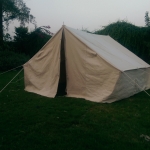Textiles are one of the most important industries in Pakistan. It is responsible for providing employment to millions of people, contributing to the country’s GDP and playing a major role in the export sector. Pakistan is the fourth largest producer of cotton and has a wide range of textile products such as cotton, jute, wool, silk, and synthetic fabrics. There are many large and small-scale textile mills in the country, with the majority of them located in Punjab and Sindh provinces.
Textiles have a long history in Pakistan and the industry has grown significantly over the years. The industry has been able to produce a wide range of products including apparel, home textiles, and industrial fabrics. The industry is also responsible for providing employment to millions of people, especially in rural areas, and is a major source of foreign exchange.
The government of Pakistan provides various incentives to the textile industry such as tax holidays, subsidies, and export incentives. This has helped the industry to grow and become more competitive in the global market. The industry is also working to improve its quality standards to meet international requirements, and is investing in modern technology to increase efficiency.
Overall, the textile industry in Pakistan is an important part of the economy and provides numerous benefits to the country. It is a major contributor to the country’s GDP, provides employment to millions of people, and has become a major source of foreign exchange. With the right policies and investments, the textile industry
Database Search


















